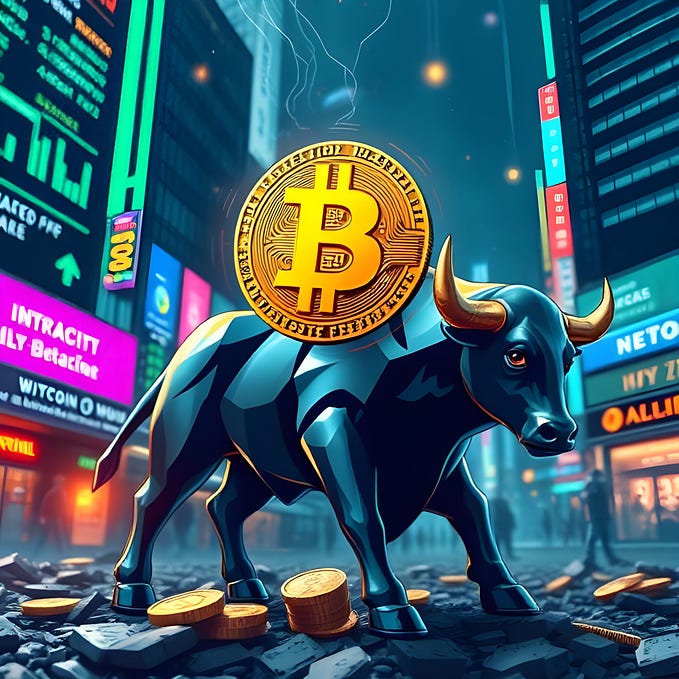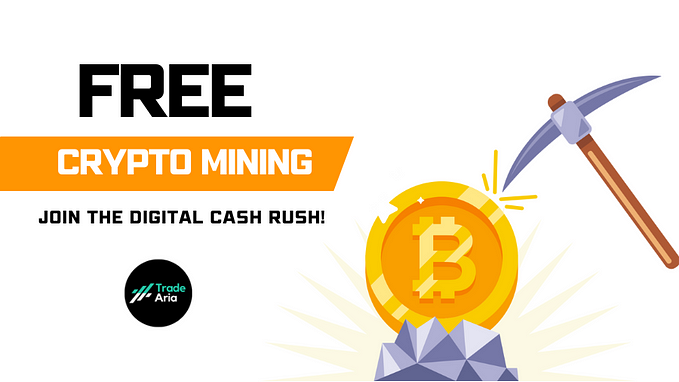Why DAOs Will Eat The World
In 2011, Marc Andreessen wrote about software eating the world — as the now-infamous Web2 platform companies like Facebook, Zynga, Salesforce, Netflix, and Google had begun to topple incumbent hardware and PC-focused organizations. Today, we stand at the doorstep of another platform revolution, where sufficiently decentralized networks that leverage the power of blockchain and tokenization are poised to topple the Web2 incumbents. In many tech circles, there’s broad consensus that DeFi is here to stay, blockchain infrastructure is growing, and tokenized incentives (from NFTs, avatars, loyalty programs, etc) are the next big thing.
DAOs have been part of the Web3 revolution since 2016, and yet there’s a less clear consensus that they’re “here to stay” for the Web3 future. This sentiment is a natural reaction to the way that DAOs operate today — they’re messy and often inefficient and disorganized as they work to realize their vision while inventing new organizational models.
After working in and around DAOs for the last two years, I’m confident that not only will DAOs succeed, they will succeed in a way that’s truly transformative in how organizations are funded, grow, and operate in the future. DAOs will be responsible for more scientific breakthroughs, transformational financial systems, and human thriving than the modern corporate structure could dream of.
This is *not* because DAOs are the “future of work,” as many (ok, including me) have claimed. Organizational structures will continue to evolve, and I have no doubt that DAOs, cooperatives, Teal organizations, and other emerging structures will be part of that conversation. More importantly, DAOs will organize and empower individuals outside of the traditional relationships we have with large corporations: those of employee, service provider, user, consumer, etc. DAOs will organize like-minded individuals and give them the power to participate in the direction and decision-making of organizations they participate in.

DAOs may not be the future of work, but they are the future of how we as a society organize around and fund shared interests and common goals. They’ll achieve this by leveraging on-chain governance and asset management, paired with a commitment to the values and structure of decentralization. Having trouble picturing this? Imagine unions, cooperatives, and consumer groups of the past evolving to a transparent, digitally-native format with a common organizing and governance structure.
Why will DAOs outperform traditional organizations?
The qualities that make DAOs, DAOs — on-chain governance, on-chain assets, and decentralization — also present key competitive advantages over centralized organizations or previous organizing structures like unions and cooperatives.
Efficient capital distribution. DAOs that keep their treasuries primarily on-chain are more easily able to transfer funds and access loans or liquidity vs traditional organizations. Their banking processes are automated and streamlined, which allows them to deploy or develop capital without increasing internal overhead.
New mechanisms for incentive alignment. As natively on-chain organizations, DAOs are uniquely positioned to leverage a variety of token setups to create incentive alignment among their participants. Traditional organizations have a lopsided, top-heavy method of value capture: when Uber does well, executives get bonuses and cash out their stock options, while drivers’ earnings remain the same and passengers pay the same rates. With aligned incentives, success (and failure) can be realized by all parties, creating a system where all participants are bought-in and participating in shared goals.
Empowering stakeholders. DAOs have been able to harness a remarkable level of talent. They do this by providing accessible frameworks for participation and empowering new stakeholder groups outside of traditional employee <> employer relationships. For example, DeFi DAOs allow any token holder to propose a modification to rates, markets, or other parameters. By opening up the decision making process through governance, DAOs benefit from the wisdom and ideas of all involved participants.
Protection against fraud. By operating its treasury on-chain, DAOs allow anyone to have transparency into the state of its assets, transfers, investments, etc. Additionally, on-chain governance provides transparency into the decision making process for a DAO. While neither on-chain governance or on-chain treasuries themselves prevent fraud, they provide a structure in which fraud or other nefarious activities are much more easily exposed. This transparency is especially impactful in the innovative, fast-paced environments DAOs operate in — which typically require a high degree of trust in order to harness funds, launch experiments, etc. DAOs can leverage on-chain transparency to lower this threshold of trust and move boldly and quickly.
Decentralization. Decentralized organizations distribute ownership and control to tokenholders, rather than small groups of executives or board members. A centralized organization is only as wise as its controlling group — who cannot be expected to navigate every surprise perfectly or anticipate every market disruption. By opening up governance and decision-making to the full group of stakeholders, DAOs tap into the wisdom of the crowds and achieve more creativity and resilience than hierarchical organizations.
Where do DAOs not win?
There are a few practices DAOs have adopted that either do not make them competitive or unique. Not all of these are disadvantages — but DAOs shouldn’t pretend that they are factors in their success.
Global reach. DAOs have tapped a large global market for both labor and token holders. This is not an advantage unique to DAOs. Traditional companies can also achieve a global reach — particularly when adopting tokenized assets or using tokenized remuneration — and in most cases, are better equipped to do so than DAOs. Working on a global scale requires navigating complex local regulatory and labor issues which centralized companies are better resourced to solve.
Cheap labor. DAOs are infamous for both wildly over- and undercompensating contributors for work. HR and compensation issues require specialized skills and are emotionally charged issues, making them difficult to solve in a decentralized decision-making structure. Similar to their position on global reach, DAOs are not well-positioned to tackle the complex issue of equitable global pay, nor can they rely solely on underpaid contributors to shoulder the increasingly complex responsibilities of operating the DAO.
Launching new products and achieving product-market fit. Launching new products and achieving product-market fit — particularly in immature Web3 markets — requires operating at high speed and making complex decisions quickly. Centralized organizations with single, clear decision makers are best positioned to operate in this environment. When sustainability and longer-term innovation are prioritized, the product can be handed into a DAO to manage.
What might it look like when DAOs eat the world?
We’ve learned a lot from today’s DAOs, but they have not yet been successful. A successful DAO future will look very different from today, as we move away from “everything can be a DAO” or “DAOs as the future of work.” DAOs will exert the most influence through governance and community organizing, with a few transformative possibilities described here.
Every B2C company will have a DAO
Consumer DAOs will become dramatically more effective and efficient than traditional membership and loyalty programs. These programs will become more transparent (on chain data), valuable (secondary marketplaces), and user-friendly/user-centric (self-governance) — ultimately providing more value to both consumers and the network.
Consumer DAOs aren’t limited just to loyalty and membership programs. By instituting on-chain governance, B2C companies can tap into the needs and desires of their users. This allows companies to channel user needs into new products and services, receive feedback, and exponentially speed up the traditional innovation and feedback cycle.
These programs may not be branded as DAOs or even recognizable as DAOs to Web2 consumers. The Starbucks Odyssey program and Reddit Creator Marketplace are early examples of this, as are Web3-native brands like Early Majority.
DAOs will become homes for creators, replacing traditional agencies, studios, labs, and publishers.
It’s obvious that the existing economy for creators across all forms of media is broken. (If Taylor Swift can’t own her own work, who can?!) DAOs represent a novel way for creators to collaborate and support each other in a positive-sum manner. On-chain assets, including NFTs, also present opportunities for creators to more fully own and reap the benefits of their work. When these assets are governed by a DAO, creators are able to reinvest in their work and the work of their community.
DAOs will also increasingly become sources of novel scientific research and experimentation. Traditionally, grants for scientific research are tightly controlled by wealthy organizations that have a financial stake in the outcomes of that research. This system disproportionately funds financially motivated research at the expense of research that could impact underrepresented populations or widespread but low ROI cures. DAOs present an opportunity both to democratize this research and break down silos that researchers often operate in, connecting individuals through their research interests rather than sources of funding.
The gig and freelance economy will exponentially expand and operate via Service DAOs.
In 2021, 16% of Americans reported participating in the gig economy, which is slated to be a $455 billion dollar industry by 2023. The gig economy provides a number of benefits — most importantly, time and commitment flexibility — resulting in gig and freelance workers feeling overwhelmingly satisfied with their jobs.
DAOs provide an opportunity for gig and freelance workers to expand their job security, available work, and benefits by banding together into Service DAOs. Service DAOs act as facilitators of a two-sided marketplace, collecting and vetting requests for work from clients and matching those requests to the appropriate workers. This increases the available work for creators and provides the structure to form teams or collaborate on complex projects. By forming a collective through Service DAOs, workers are also able to advocate for better working standards and protect against harassment.
The presence of these Service DAOs also provide an opportunity for employers to lean more heavily on gig and freelance organizations. Service DAOs provide employers with more reliability, redundancy, and flexibility. They’re more efficient than agencies, and more reliable and flexible on timing and pricing than working with a single contractor.
Today’s DAOs will evolve into dramatically different organizations.
With the right talent and time, DAOs will figure out the things that they already know they need to solve — governance, legal, and financial/operational discipline. There are promising inroads in governance, both structurally and operationally with professional delegates and evolving governance structures. Many jurisdictions will recognize the benefits of being DAO-friendly, and create more fair and reasonable regulations for them. Relieving DAOs of these pressures will allow them to innovate and proliferate more quickly.
One promising trend is that DAOs are already putting less emphasis on the fact that they’re a DAO, and more emphasis on how being a DAO gives them a unique advantage vs alternative solutions. (Many of them have stopped naming themselves DAOs!)
DAOs All the Way Down
Anyone building in Web3 will be building for or with a DAO at some point. We’ll be working in or alongside Service DAOs or Creator DAOs, engaging with users and consumers through B2C DAOs, and embracing the ways that DAOs allow us to connect with others who share our goals and interests. DAOs have a long way to go and many challenges to solve, but the future is bright.
In a call back to Andreessen — DAOs are not just where I’m putting my money, but more importantly, my time, knowledge, and skills.







